第29章
ORIGIN OF GOVERNMENT--CONCLUDED.
VI.The theory which derives the right of government from the direct and express appointment of God is sometimes modified so as to mean that civil authority is derived from God through the spiritual authority.The patriarch combined in his person both authorities, and was in his own household both priest and king, and so originally was in his own tribe the chief, and in his kingdom the king.When the two offices became separated is not known.In the time of Abraham they were still united.
Melchisedech, king of Salem, was both priest and king, and the earliest historical records of kings present them as offering sacrifices.Even the Roman emperor was Pontifex Maximus as well as Imperator, but that was so not because the two offices were held to be inseparable, but because they were both conferred on the same person by the republic.In Egypt, in the time of Moses, the royal authority and the priestly were separated and held by different persons.Moses, in his legislation for his nation, separated them, and instituted a sacerdotal order or caste.The heads of tribes and the heads of families are, under his law, princes, but not priests, and the priesthood is conferred on and restricted to his own tribe of Levi, and more especially the family of his own brother Aaron.
The priestly office by its own nature is superior to the kingly, and in all primitive nations with a separate, organized priesthood, whether a true priesthood or a corrupt, the priest is held to be above the king, elects or establishes the law by which is selected the temporal chief, and inducts him into his office, as if he received his authority from God through the priesthood.
The Christian priesthood is not a caste, and is transmitted by the election of grace, not as with the Israelites and all sacerdotal nations, by natural Generation.Like Him whose priests they are, Christian priests are priests after the order of Melchisedech, who was without priestly descent, without father or mother of the priestly line.But in being priests after the order of Melchisedech, they are both priests and kings, as Melchisedech was, and as was our Lord himself, to whom was given by his Father all power in heaven and in earth.The Pope, or Supreme Pontiff, is the vicar of our Lord on earth, his representative--the representative not only of him who is our invisible High-Priest, but of him who is King of kings and Lord of lords, therefore of both the priestly and the kingly power.
Consequently, no one can have any mission to govern in the state any more than in the church, unless derived from God directly or indirectly through the Pope or Supreme Pontiff.Many theologians and canonists in the Middle Ages so held, and a few perhaps hold so still.The bulls and briefs of several Popes, as Gregory VII., Innocent Ill., Gregory IX., Innocent IV., and Boniface VIII., have the appearance of favoring it.
At one period the greater part of the medieval kingdoms and principalities were fiefs of the Holy See, and recognized the Holy Father as their suzerain.The Pope revived the imperial diunity in the person of Charlemagne, and none could claim that dignity in the Western world unless elected and crowned by him, that is, unless elected directly by the Pope or by electors designated by him, and acting under his authority.There can be no question that the spiritual is superior to the temporal, and that the temporal is bound in the very nature of things to conform to the spiritual, and any law enacted by the civil power in contravention of the law of God is null and void from the beginning.This is what Mr.Seward meant by the higher law, a law higher even than the Constitution of the United States.
Supposing this higher law, and supposing that kings and princes hold from God through the spiritual society, it is very evident that the chief of that society would have the right to deprive them, and to absolve their subjects, as on several occasions he actually has done.
But this theory has never been a dogma of the Church, nor, to any great extent, except for a brief period, maintained by theologians or canonists.The Pope conferred the imperial dignity on Charlemagne and his successors, but not the civil power, at least out of the Pope's own temporal dominions.The emperor of Germany was at first elected by the Pope, and afterwards by hereditary electors designated or accepted by him, but the king of the Germans with the full royal authority could be elected and enthroned without the papal intervention or permission.The suzerainty of the Holy See over Italy, Naples, Aragon, Muscovy, England, and other European states, was by virtue of feudal relations, not by virtue of the spiritual authority of the Holy See or the vicarship of the Holy Father.The right to govern under feudalism was simply an estate, or property; and as the church could acquire and hold property, nothing prevented her holding fiefs, or her chief from being suzerain.The expressions in the papal briefs and bulls, taken in connection with the special relations existing between the Pope and emperor in the Middle Ages, and his relations with other states as their feudal sovereign, explained by the controversies concerning rights growing out of these relations, will be found to give no countenance to the theory in question.